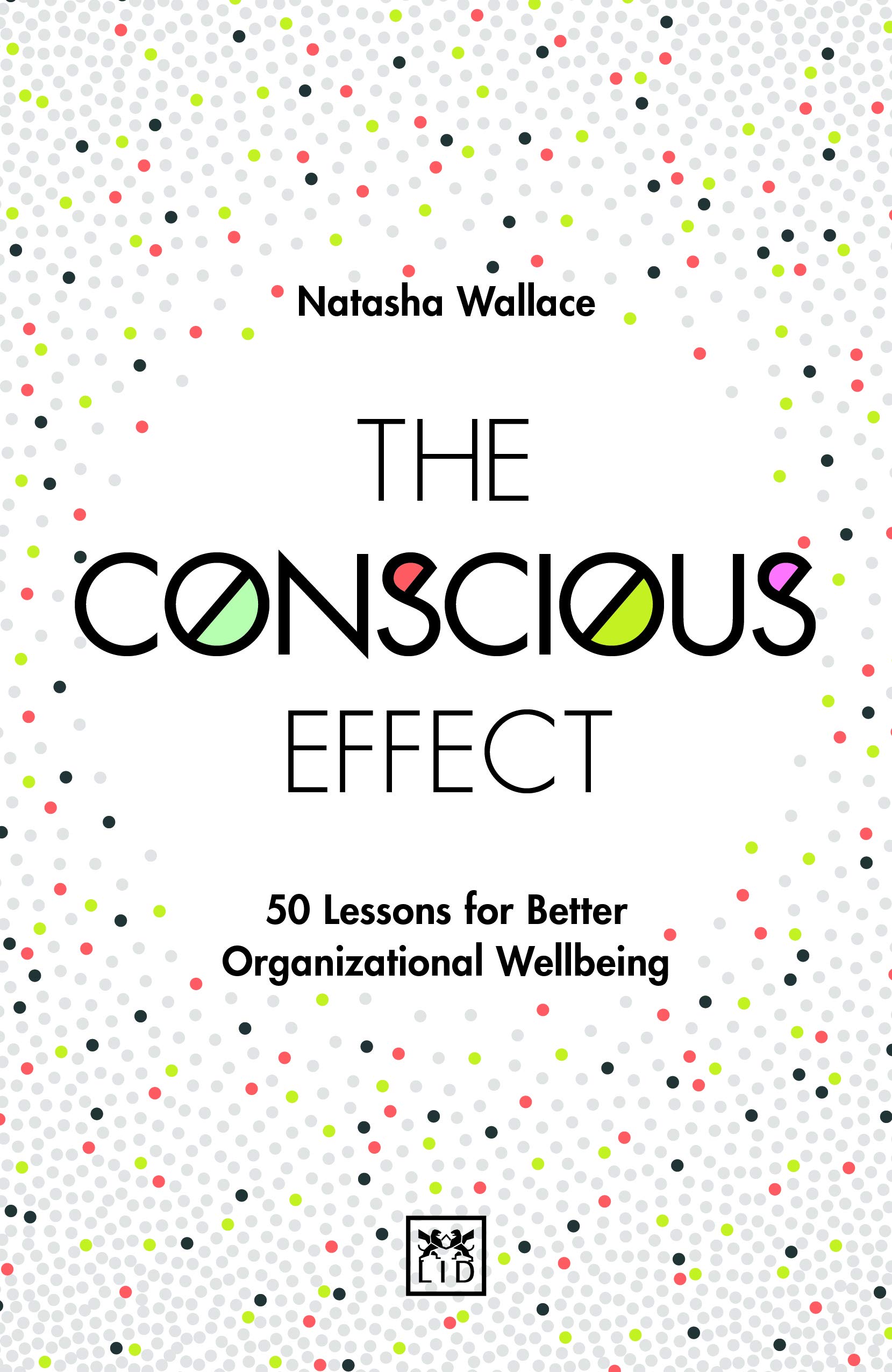
Any study of how personal wellbeing, a larger issue than just physical health, influences the overall direction of any organization would be lacking if it did not likewise explore how effective leadership shapes that aforementioned wellbeing. Natasha Wallace’s The Conscious Effect: 50 Lessons for Better Organizational Wellbeing leaves nothing out in its discussion of the issue. Wallace’s long experience as a HR professional, a respected voice regarding leadership and personal development, and her own journey leading to the formation of her business Conscious Works buttresses her point of view at every turn during The Conscious Effect and helps make its fifty “lessons” even more convincing for readers.
One of the more satisfying aspects of this book, however, is its potential for universal application. Wallace, obviously, gears it more to serve the reader’s professional life, but the lessons contained within its pages can produce positive effects applied to the reader’s personal life as well. Following the examples and principles Wallace advocates in this book has a trickle-down effect just as someone floundering can negatively affect an organization or those close to them. Her lessons are never obtuse or difficult to comprehend. These are things leadership, front line employees, and individuals can begin practicing in their everyday lives now and see immediate results from in many cases.
BUY ON GOODREADS: https://www.goodreads.com/book/show/46276547-the-conscious-effect
She does not expect readers to accept her ideas and words without supporting evidence. To that end, Wallace draws from multiple sources, all documented at the book’s end, to support her point of view and companies who faced related dilemmas and how they answered their challenges. This is another important factor in the book’s success. Her prose through the entirety of The Conscious Effect is another reason why this work should enjoy an appreciative audience for many years to come. It, likewise, deals in the reality of these issues rather than fanciful situations lacking any real bearing on the day-to-day lives of its target audience. Wallace understands we have busy lives, as does she, and never wastes the reader’s time with self-indulgent digressions.
The book provides many chances for readers to self-reflect along the way on what they are reading and ask probing questions about the subject at hand. Wallace never employs these devices in a heavy-handed or laughable way; these opportunities are practical and laid out in concrete language rather than high-flown rhetoric. The recaps and case studies she includes at the conclusion of each section in the book underline this, but there are numerous graphics included throughout the course of The Conscious Effect contributing to our understanding of the material.
Wallace writes with the self-assurance of someone who accumulated these lessons over a professional lifetime, but she also brings to bear unique insights marking her as a student of human character. The latter is an important facet of what makes this book work so well and The Conscious Effect: 50 Lessons for Better Organizational Wellbeing would be a good but lesser work without those attentive glimpses into what drives individuals and makes them tick.
Kim Muncie

Thank you so much for a wonderful review Kim. I’m so pleased you enjoyed the book and appreciate you leaving a review.